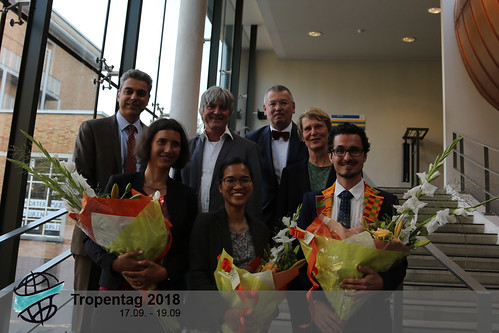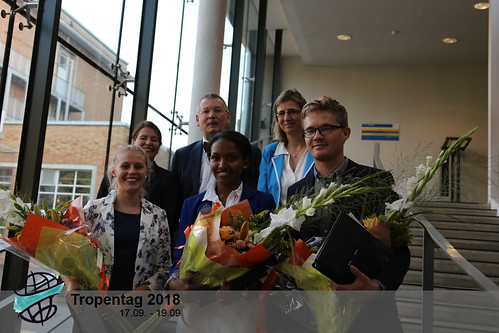Onu Ekpa's blog
Ebola outbreak: don’t blame only bush meat
Tue, 09/18/2018 - 17:19 — Onu EkpaIn Sierra Leone, Guinea and Liberia, the recent Ebola virus (EBOV) outbreak was devastating and led to more than 10,000 death. But who or what should we blame? - wild, domestic animals or both ...? That is the question Juliet Jabaty from Sierra Leone Agricultural Research Institute tries to find answers to. She agrees that bush animals such as bat and monkey are the major reservoir of EBOV but more animals could be culprit in cases reported. This critical research gap is yet to be filled hence Juliet researched on “The Role of Livestock and Wildlife in the Biology of Ebolaviruses”. She hypothesized that pigs, dogs and some ruminants can serve as reservoir for transmission of EBOV.
Africa indigenous vegetables face extinction!
Tue, 09/18/2018 - 14:41 — Onu EkpaKenya like many other African countries faces double nutrition burden – undernutrition and over-nutrition. The former is due to inadequate nutrient intake and the latter could be attributed to changes in lifestyle such as consumption of western food junks coupled with a sedentary lifestyle, paraphrased from Anne Aswani Musotsi’s presentation. Anne is from Jomo Kenyatta University of Agriculture and Technology, Kenya and she presented on – “African Indigenous Vegetables (AIV) Contribution Towards Food Security and Safety in Kenya: A Meal Cultures Perspective”. She mentioned that AIV could ensure nutrition security but unfortunately the consumption is low and many of the vegetables are going into extinction. This is counterintuitive especially in a society with malnutrition and millions of people suffering from avoidable and irreversible nutritional consequences. AIV consumption is very low. Due to changes in cultural practices over the years, people eat other crops and shifted attention from indigenous vegetables – colonial influence paradigm.
Eat egg during pregnancy, get a stupid baby
Tue, 09/18/2018 - 13:44 — Onu EkpaThe title sounds very strange but it is a perception in some regions in Africa including the upper region of Gambia. Taboos during pregnancy are one of the many forms of food taboos present in Africa, influencing consumption pattern and food habit. Therefore, it is imperative to consider the cultural elements of the people in every intervention to ensure optimal impact. This thought was considered in Céline Termote’s research on “Role of Biodiversity in Improving Dietary Diversity and Quality of Complementary Foods for Infants and Young Children in Southern Benin”.
In Zambia, if you touch maize, you lose an election!
Tue, 09/18/2018 - 10:24 — Onu EkpaAgriculture can improve nutrition but it is not what you think. Namukolo Covic, coordinator A4NH in Ethiopia gave an interesting perspective in her keynote speech at the plenary session II. She reiterated that countries must leverage on non-agricultural sectors to complement agricultural interventions. Unless this is done, agriculture and food systems cannot work to ensure optimal nutrition outcome. This is not peculiar to developing countries, even the developed countries face similar challenges. An integrated or holistic approach will no doubt improve the contribution of agriculture to food security and nutrition.
Stand Up (for the champions!) – Part 2
Mon, 09/17/2018 - 21:55 — Onu EkpaOne striking quote from Denise’s presentation was presumably from Albert Einstein – which says that "if bees disappear from the earth, humans would be extinct within 4 years". Though this quote is definitely not from Einstein, it carries equal weight as Einstein – the greatest scientist ever! This same level of importance of bees drives Denise’s life-saving mission. In pursuing her passion, she systematically integrated indigenous groups and honey bees, thereby improving the livelihood of the people and promoting conservation agriculture.
Stand Up (for the champions!) - Part 1
Mon, 09/17/2018 - 20:08 — Onu EkpaAnd this year Hans Hartwig Ruthenberg Graduate Award goes to …. Beatrice Nöldeke, Bezawit Adugna Bahru and Lutz-Heiner. Beatrice from Leibniz University of Hanover conducted a research in Zambia on “Gender-Specific Aspects of Transforming Fish Value Chains in Zambia”. She found that better food security can be guaranteed by empowering females in fish value chains. The second recipient, Bezawit from University of Hohenheim researched “Climatic shocks and child undernutrition in Ethiopia: a longitudinal path analysis’’. She observed that program targeted at climate affected areas have a positive effect on the livelihood and nutrition of households especially the children.
Oga Patapata
Sun, 09/16/2018 - 19:02 — Onu EkpaOnu Ekpa hails from Nigeria. He is a PhD candidate in Food Quality and Design at Wageningen University, The Netherlands. He is the current president of UCAS – United Community of African Student, Wageningen.
Onu believes that in contemporary society, aside from being a good scientist, it is imperative to be able to communicate effectively to a wider audience. Through effective communication, a scientist can build a positive image of science to the general public, especially to the likes of those still clutching at the straw of disbelieving or denying climate change and other scientific facts around us. Being a student reporter gives him the opportunity to improve his communication of research and interact with people from diverse background.
He is passionate about value addition to agricultural produce and creating opportunities for the youths. He hopes to cover the conference sessions on food technology, safety and security. You can follow him on Facebook, Linkedin and ResearchGate.






